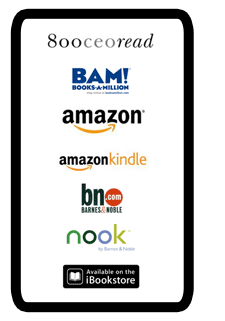Introducing HelpMeSellMe – A new opportunity from David Topus
January 11th, 2013 by user
As a career-minded professional, you have achieved a notable level of success through your intelligence, skills, hard work, and knowing how to take advantage of opportunity. Perhaps you’ve built a high performing team. Helped your company increase its revenues. Decrease its costs. Improve performance and productivity.
But like most upwardly-mobile professionals, you’re always looking to an even better future. In today’s competitive job market, successful careers don’t just happen, they’re managed. And the key is in being transition-ready. That means having the next opportunity in sight. Having a resume and personal marketing materials that are up-to-date and engaging. And that differentiate you from the competition.
You know what you’re capable of. Others around you know, too. But will your personal marketing materials convey your value proposition and expertise so you can make a smooth, rapid and profitable transition?
With HelpMeSellMe, you get packaged, positioned and presented to ensure your unique value proposition is recognized. And to help you get found and hired. Think of it as detailing for your career. Whether you’re in transition, or want to build a personal brand that keeps you in demand, HelpMeSellMe is where you get shined, polished and buffed. With dynamic resumes that position you. Innovative Biografics that differentiate you. And online profiles that make you easy to find. With HelpMeSellMe, you get the attention you need, the job you want, and the compensation you deserve.
HelpMeSellMe. It’s How You Roll.
The team is led by David Topus, one of the nation’s leading personal branding and career experts. David was the founder of ExecuNet’s Career Services division, and inventor of the game-changing Biographic. Working closely with David is a group of highly trained, certified and experienced personal marketing professionals, including resume writers, job search strategists, career coaches and social media experts.
David Topus

David turns reputations into revenue by taking the mess out of messaging and putting the art in articulation. A veteran expert in value-based communication, he brings a thirty year career of turning reputations into revenue for companies and individuals across the country andaround the world. In addition to running his own sales messaging and readiness firm since 1990, he was the founding general manager of ExecuNet’s Career Services Division, where he built a team of personal marketing content specialists and job search consultants. His early background includes 12 years in advertising and marketing with The Wall Street Journal, Washington Post and IDG Communications. He is the author of “Talk to Strangers: How Your Everyday, Random Encounters Can Expand Your Business, Career, Income and Life” (John Wiley, April 2012). He has an uncanny ability to uncover and convey in engaging and compelling terms an individual’s unique value proposition.
 Sherry Turkle, communications professor at MIT, wrote in a recent Sunday New York Times a fabulous piece about the state of interpersonal communication in our society. Her perspective was especially relevant for job seekers. It pointed out how over-connected our culture has become through technology and under-connected in person. She says that the best, highest-quality relationships require the richness and chemistry that only face-to-face interaction permits and that the skills of interpersonal communication are being all but lost as we become more isolated from one another.
Sherry Turkle, communications professor at MIT, wrote in a recent Sunday New York Times a fabulous piece about the state of interpersonal communication in our society. Her perspective was especially relevant for job seekers. It pointed out how over-connected our culture has become through technology and under-connected in person. She says that the best, highest-quality relationships require the richness and chemistry that only face-to-face interaction permits and that the skills of interpersonal communication are being all but lost as we become more isolated from one another.


 So back to the conversation…”How long’ve you been with them?”, is a great follow up. And from there, “what do you do for them?”, asked with authentic curiosity will help you guide the conversation to discover what is possible. If you know someone who works at the same company, you might ask if they know them. If you know something about the industry, you might remark on it. If you want to know more about the industry, you can ask.
So back to the conversation…”How long’ve you been with them?”, is a great follow up. And from there, “what do you do for them?”, asked with authentic curiosity will help you guide the conversation to discover what is possible. If you know someone who works at the same company, you might ask if they know them. If you know something about the industry, you might remark on it. If you want to know more about the industry, you can ask.




